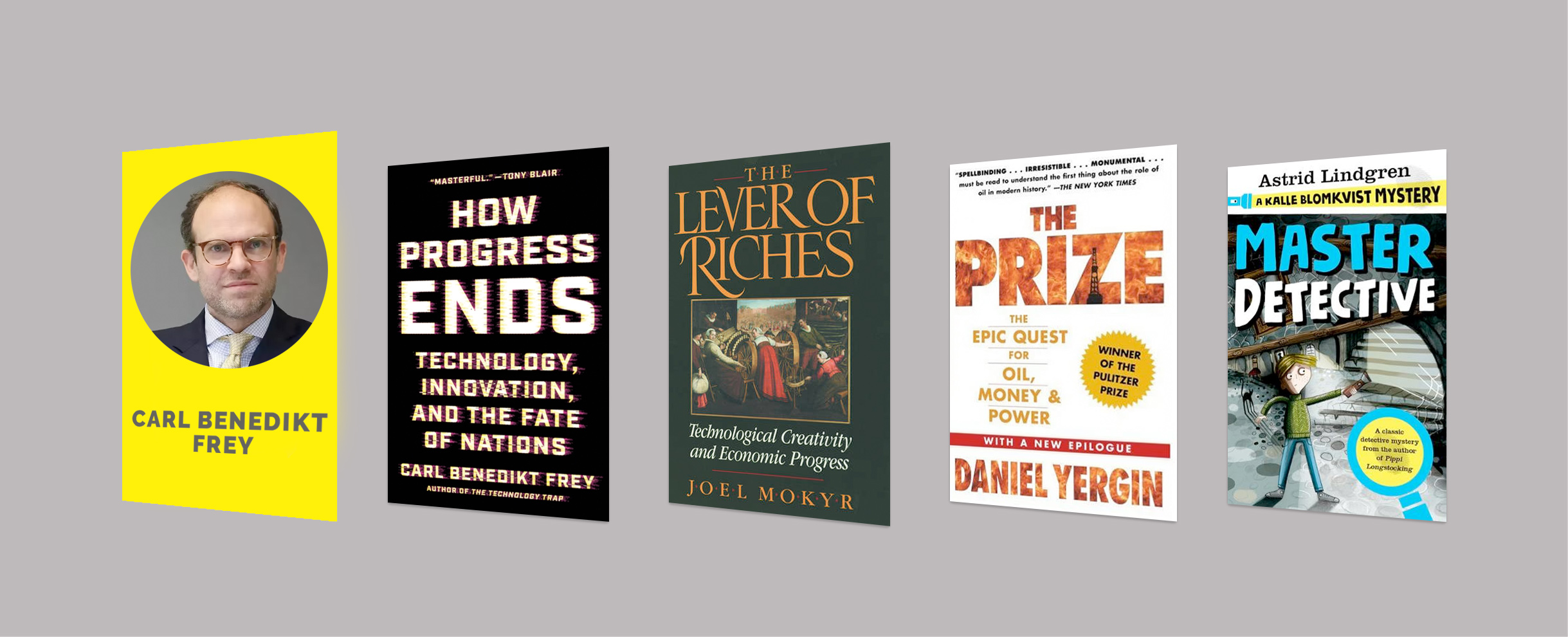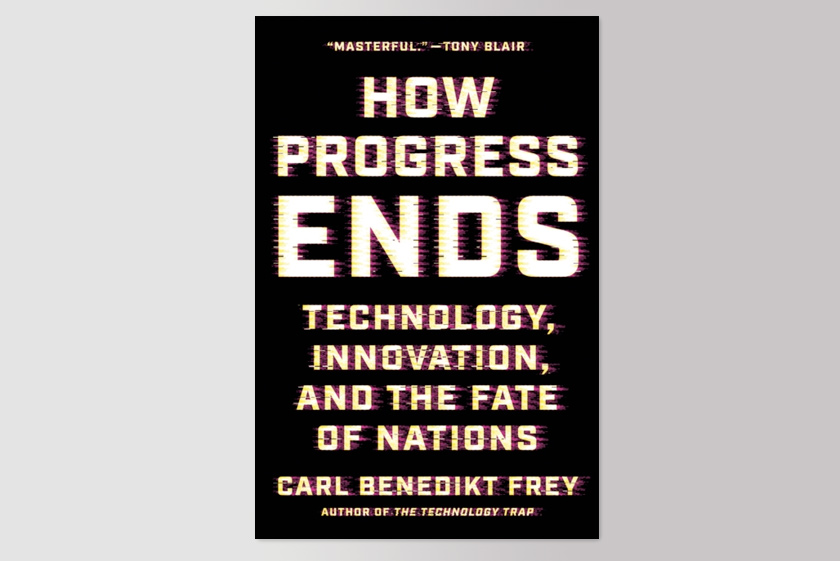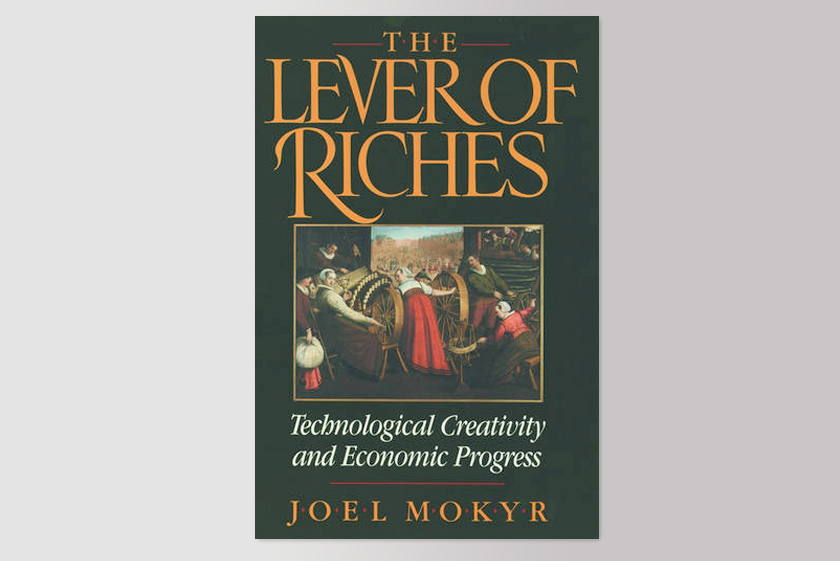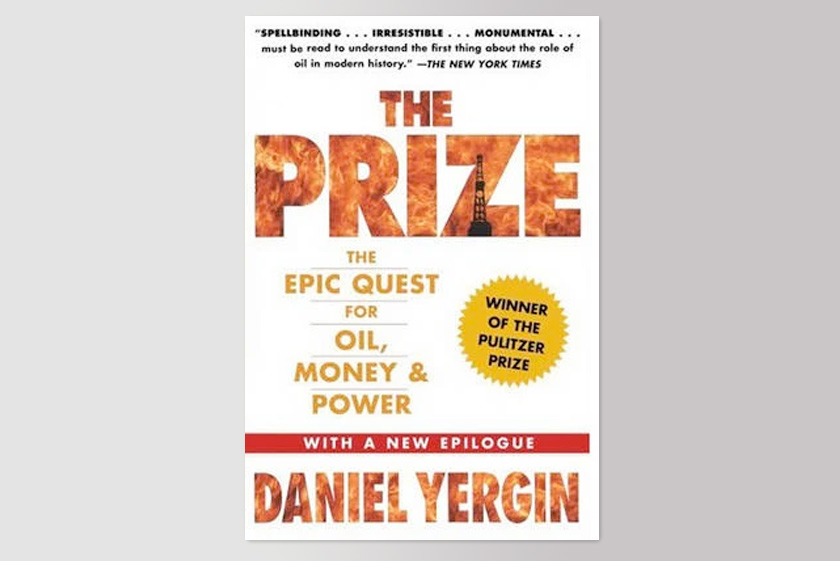Interview with Carl Benedikt Frey, author of How Progress Ends: Technology, Innovation, and the Fate of Nations

Carl Benedikt Frey, author of How Progress Ends: Technology, Innovation, and the Fate of Nations recommends an excellent set of books! Before jumping into the interview, please check out Carl Benedikt's book:
Description from Bookshop.org: (All links earn commission from purchases. Prices accurate at time of writing)
How Progress Ends: Technology, Innovation, and the Fate of Nations
How 1,000 years of global history show why technological and economic progress is often followed by stagnation and even collapse
In How Progress Ends, Carl Benedikt Frey challenges the conventional belief that economic and technological progress is inevitable. For most of human history, stagnation was the norm, and even today progress and prosperity in the world’s largest, most advanced economies—the United States and China—have fallen short of expectations. To appreciate why we cannot depend on any AI-fueled great leap forward, Frey offers a remarkable and fascinating journey across the globe, spanning the past 1,000 years, to explain why some societies flourish and others fail in the wake of rapid technological change.
By examining key historical moments—from the rise of the steam engine to the dawn of AI—Frey shows why technological shifts have shaped, and sometimes destabilized, entire civilizations. He explores why some leading technological powers of the past—such as Song China, the Dutch Republic, and Victorian Britain—ultimately lost their innovative edge, why some modern nations such as Japan had periods of rapid growth followed by stagnation, and why planned economies like the Soviet Union collapsed after brief surges of progress. Frey uncovers a recurring tension in history: while decentralization fosters the exploration of new technologies, bureaucracy is crucial for scaling them. When institutions fail to adapt to technological change, stagnation inevitably follows. Only by carefully balancing decentralization and bureaucracy can nations innovate and grow over the long term—findings that have worrying implications for the United States, Europe, China, and other economies today.
Through a rich narrative that weaves together history, economics, and technology, How Progress Ends reveals that managing the future requires us to draw the right lessons from the past.
Buy On:
Bookshop.org UK £30.00
Bookshop.org US $32.55
Blackwells £25.00
Waterstones £30.00
Q. Do you have a favourite smart thinking book (and why that book)?
The Lever of Riches: Technological Creativity and Economic Progress by Joel Mokyr. Description from Blackwells: (All links earn commission from purchases. Prices accurate at time of writing)
I just keep returning to it since reading it about 25 years ago. It is packed with rigorous detail and a constant reminder that progress is fragile.

The Lever of Riches: Technological Creativity and Economic Progress
Why are some nations more technically creative than others and why do some highly innovative societies eventually stagnate? In this provocative study of the value and meaning of technological advance, Joel Mokyr considers how past physical and social conditions have influenced the development and reception of new ideas, and shows how these trends can guide future industrial strategies at a time when more countries than ever before are competing for the rewards of technical ingenuity.
Buy On:
Bookshop.org UK £19.94
Bookshop.org US $29.89
Blackwells £7.99
Waterstones £20.99
Q. What's the most recent smart thinking book you've read (and how would you rate it)?
The Prize: The Epic Quest for Oil, Money, and Power by Daniel Yergin. Description from Bookshop.org: (All links earn commission from purchases. Prices accurate at time of writing)
It is a wonderful blend of history, geopolitics and economics, and a vivid account of perhaps the most consequential technological development in modern history: the discovery of oil. 5 out of 5.

The Prize: The Epic Quest for Oil, Money, and Power
The definitive work on the subject of oil and a major contribution to understanding our century, The Prize is a book of extraordinary breadth, riveting excitement -- and great importance.
The struggle for wealth and power that has surrounded oil for decades continues to shake the world economy, dictate the outcome of wars, and transform the destiny of men and nations. The Prize is as much a history of the twentieth century as of the oil industry itself. The canvas of this history is enormous -- from the drilling of the first well in Pennsylvania through two great world wars to the Iraqi invasion of Kuwait and Operation Desert Storm. The cast extends from wildcatters and rogues to oil tycoons, and from Winston Churchill and Ibn Saud to George Bush and Saddam Hussein.
Buy On:
Bookshop.org UK £16.14
Bookshop.org US $24.17
Blackwells £19.36
Waterstones £16.99
Q. Do you have a favourite childhood book?
Kalle Blomkvist Mystery Master Detective by Astrid Lindgren. Description from Bookshop.org: (All links earn commission from purchases. Prices accurate at time of writing)
Growing up in Sweden, anything by Astrid Lindgren. Probably Kalle Blomkvist.

Kalle Blomkvist Mystery Master Detective
When Elizabeth Bennet meets Mr Darcy, she is repelled by his overbearing pride and prejudice towards her family. But the Bennet girls are in need of financial security in the shape of husbands, so when Darcy's friend, the affable Mr Bingley, forms an attachment to Jane, Darcy becomes increasingly hard to avoid. Polite society will be turned upside down in this witty drama of friendship, rivalry and love - Jane Austen's classic romance novel.
Buy On:
Bookshop.org UK £7.59
Blackwells £7.99
Waterstones £7.99
Q. Do you prefer reading on paper, Kindle or listening to an audiobook?
Paper for pleasure. Kindle for travel. Audio for commuting and cleaning.
Q. Do you have a favourite bookshop (and why that shop)?
Blackwells
Blackwells in Oxford. I could just spend hours wandering around.
Many thanks to Carl Benedikt for recommending an excellent set of books! Please don't forget to check out How Progress Ends: Technology, Innovation, and the Fate of Nations.
Daryl
Image Copyrights: (How Progress Ends: Technology, Innovation, and the Fate of Nations), Oxford University Press Inc (The Lever of Riches: Technological Creativity and Economic Progress), Simon & Schuster Ltd (The Prize: The Epic Quest for Oil, Money, and Power), Oxford University Press (Kalle Blomkvist Mystery Master Detective).
< Home








